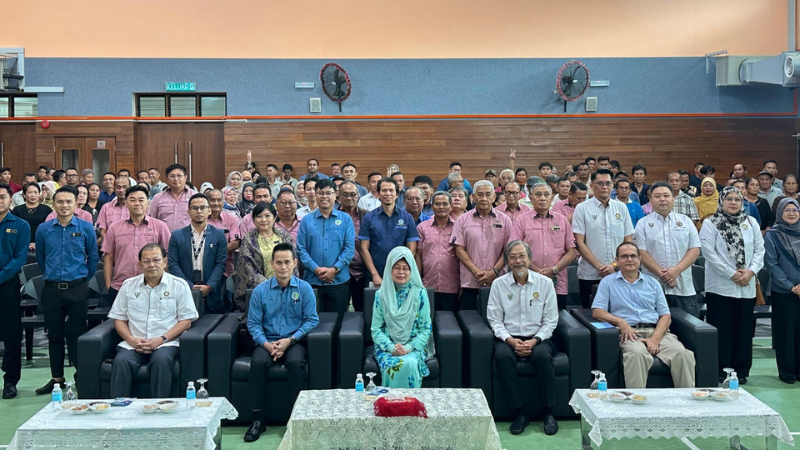 Dato Sri Fatimah Abdullah and other invited guests at the 2025 Transfer of Technology Programme at the Dalat Welfare Complex, on Monday. Photo by DUN Dalat Service Centre
Dato Sri Fatimah Abdullah and other invited guests at the 2025 Transfer of Technology Programme at the Dalat Welfare Complex, on Monday. Photo by DUN Dalat Service Centre
DALAT, Oct 27: The Sago and Nipah Development Board (SNDB) has formulated various initiatives to increase the income of sago farmers in Dalat.
Minister of Women, Children and Community Wellbeing, Dato Sri Fatimah Abdullah, said that this will be the main catalyst for the development of the industry.
According to her, SNDB was created specifically to monitor and develop the sago and nipah industries in Sarawak.
“In the initial stage, we proposed the establishment of the Sago Board only. However, as a result of the views and decisions of the Sarawak Premier, the nipah industry was also merged under the same board.
“The establishment was also approved by the Sarawak Cabinet,” he said when speaking at the Technology Transfer Programme 2025 Adjournment Ceremony at the Dalat Welfare Complex, today.
According to him, the government also approved the construction of the SNDB Complex which will house the board’s office near the existing building, with the design currently being refined together with Craun Research and the team of architects involved.
He said the complex would not only house administrative offices, but also a sago industry gallery that would showcase the entire process and development of the industry from upstream to downstream, as well as being expected to become a new agro-tourism attraction in the area.
Fatimah also expressed her appreciation to Craun Research for its efforts in conducting various scientific studies to increase the productivity of sago crops in the area.
“However, the results of this research need to be translated into actual agricultural practices so that the benefits can be enjoyed by smallholders.
“The Sarawak government has also agreed to transfer the Craun Research entity from MIE to M-BioTech to ensure that research related to sago and nipah is carried out in a more structured and focused manner,” he said.
He also called on sago farmers to shift from traditional methods to modern agricultural practices with the use of smart technology and artificial intelligence (AI) to increase yields and product quality.
Meanwhile, Fatimah praised the joint initiative with Petronas through the Corporate Social Responsibility (CSR) program which converts sago factory waste into organic fertilizer using modern technology.
“This effort will not only reduce water pollution in Sungai Batang Oya, but also produce economically valuable by-products such as fertilizer and animal feed,” he explained.


